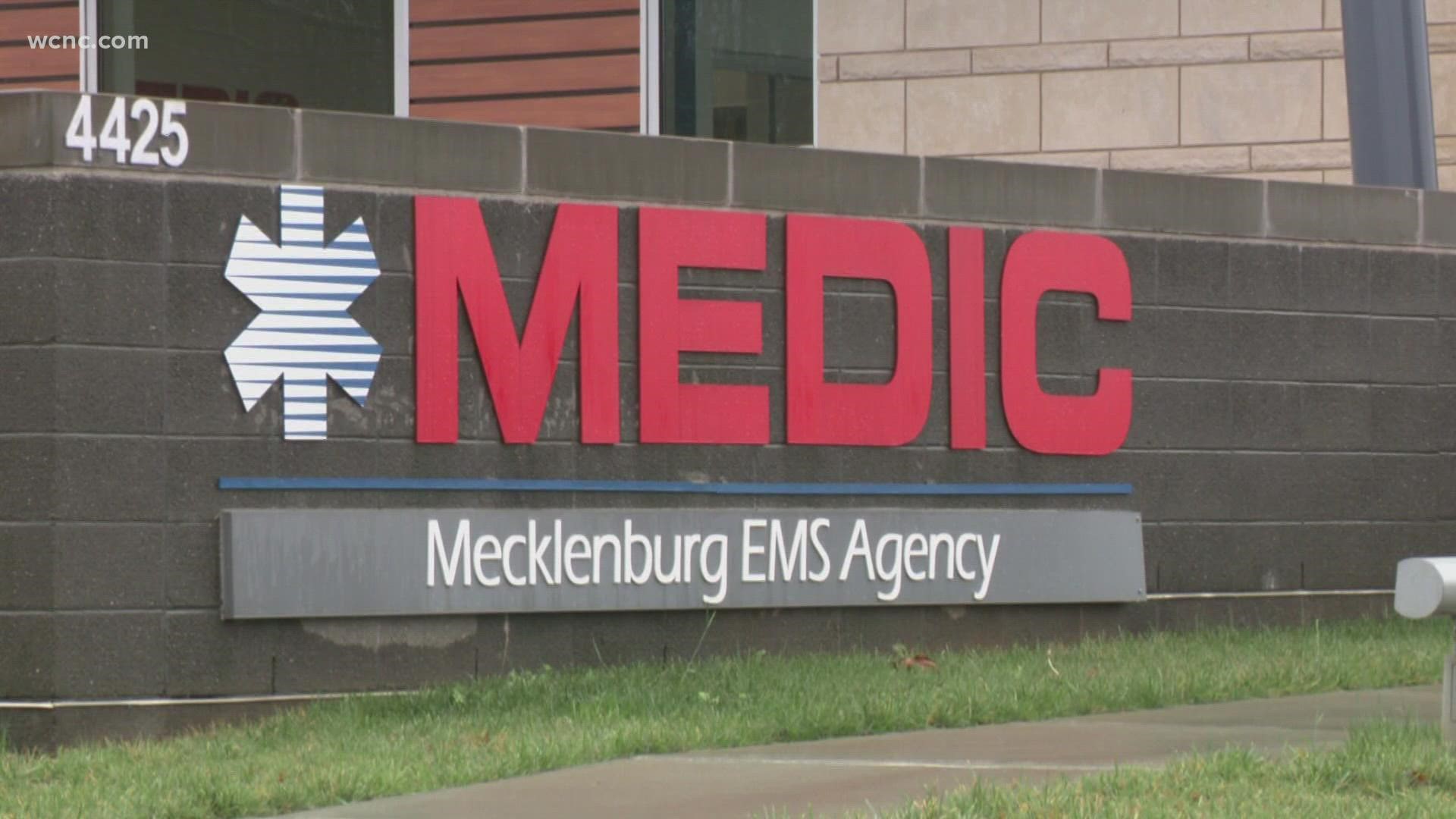CHARLOTTE, N.C. — North Carolina's busiest EMS agency is now calling on help from the state and FEMA.
Mecklenburg EMS (Medic) has been struggling with a staffing shortage, and once again is changing operations to try to stretch their thin staff to respond to the most severe calls first.
As a result, some 911 callers in the city will now need to wait even longer for an ambulance to arrive.
“We know that COVID is spreading rapidly in our community and it is impacting Medic," Jonathan Studnek with Mecklenburg EMS said.
Studnek explained the Tuesday before Christmas, Medic only had three employees in isolation due to COVID-19.
“Now, a little less than two weeks later we have 33 employees in isolation due to COVID," Studnek said.
Studnek said EMS was already short-staffed before the isolations.
“Our full budgeted staff of field providers is 374 and we currently 325, so a pretty significant shortage," Studnek said.
Studnek said their limited staff is now having to accommodate a rising number of COVID-19 transports.
“Where we were doing four-five COVID transports per day, we’re close to the peak number of COVID transports we've seen in our community, which is close to 25-30 a day," Studnek said.
Studnek said the department has requested an ambulance strike team from FEMA to fill in gaps.
“We made a request for 25 ambulances and 50 personnel," Studnek said.
In the meantime, in order to quickly respond to patients in dire situations, Studnek said Medic has once again slowed the time they will respond to low acuity patients.
“The response time criteria for those patients is now 60 minutes, moved from 30 minutes," Studnek said.
Studnek said low acuity patients are ones whose symptoms won't be impacted by the delay.
“They’re fully awake, fully alert, they're not having chest pain, they're not having difficulty breathing," Studnek said.
Studnek said the response time for high acuity and medium acuity patients will remain the same, not impacted by the changes.
To save resources, Studnek said they will also limit non-emergency ambulance trips from hospitals.
“We don’t have the resources to help discharge patients to locations outside of Mecklenburg County so we’ll be ceasing that work for at least 30 days,” Studnek said.
Studnek said Medic is also educating their employees and low acuity patients on when ambulances are not necessary and asks people not to call 911 for an ambulance to get a test for COVID-19 as they do not provide that service.
Studnek said it has been hard to hire people during the pandemic, but that those efforts are ongoing. Studnek said they have recently graduated 11 people and have just over a dozen people in the recruiting class for January.
Contact Lana Harris at lharris@wcnc.com and follow her on Facebook, Twitter and on Instagram.

